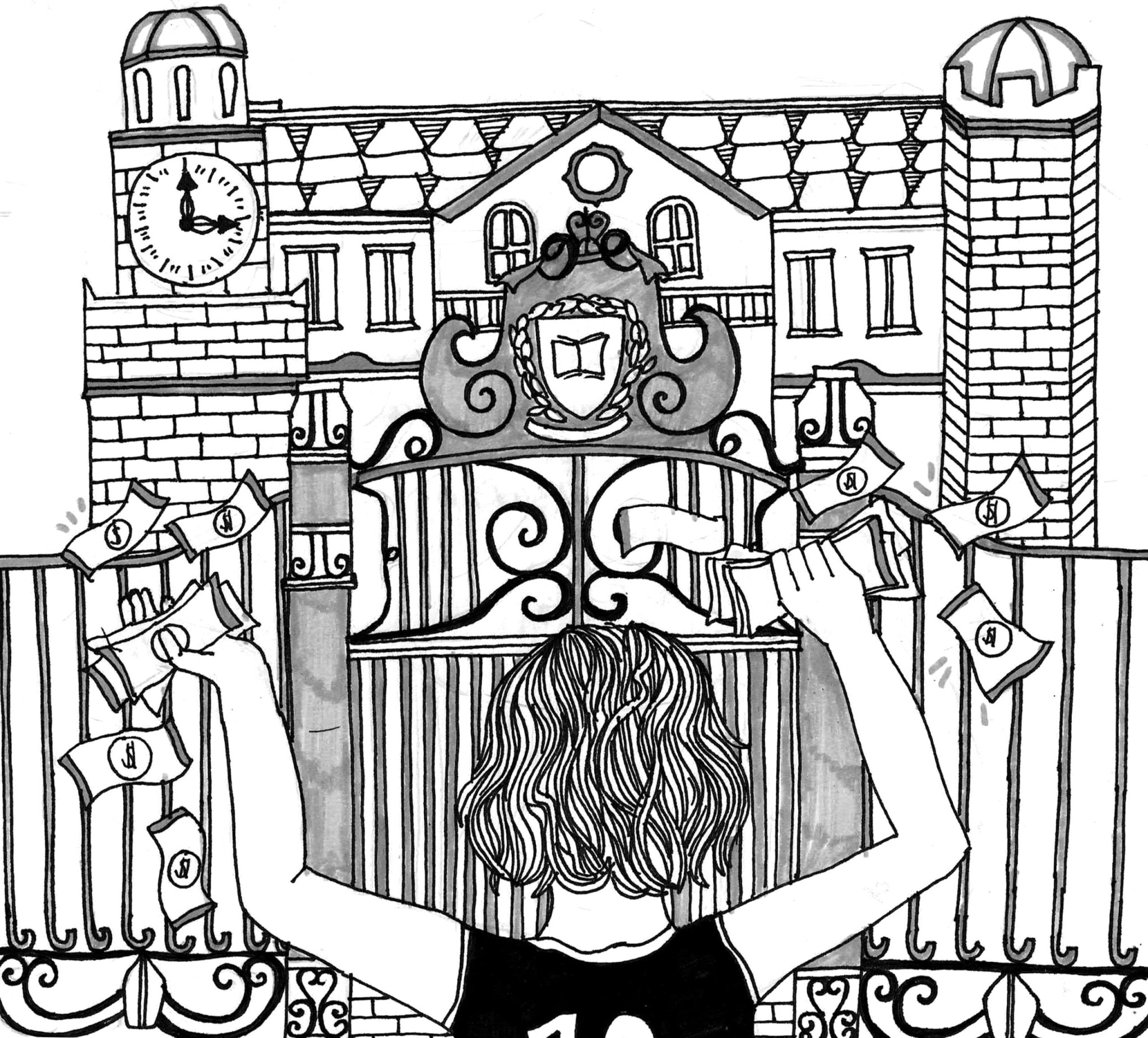As January comes to a close, the focus of high school students across the world has increasingly turned to college. Students across the country are finding the college admissions system unfair and inequitable. This discontent came to a peak in March 2019 when a college admissions bribery scandal known as “Operation Varsity Blues” came under the public eye, shining a spotlight on the issues with the systems at some schools. Varsity Blues involved dozens of wealthy parents paying hundreds of thousands of dollars to other individuals to take standardized tests for their children, as well as positioning their children as student athletes to ensure their admission. Some of their children posed for pictures as members of a crew team or in pools as water polo players. In response, the California state government is tightening its control on the process with a set of legislation that will take effect in 2020. The State Assembly passed two new laws in its College Admissions Reform package to increase oversight and ensure the public that, despite the nationwide scandal, they will continue to provide a level playing field. The first of the policies targets the “admission by exception” policy for University of California (UC) campuses. The law currently allows UC branches to admit up to 6 percent of their incoming freshman class from students who do not meet eligibility standards. Jennifer Hammond, a college counselor at Berkeley High School (BHS), said that she thinks the law’s target is rather blurred. “Admissions by exception are nebulous,” said Hammond. “To my understanding, they can be used for athletic recruitment or in rare cases where students have gone through traumatic events or serious barriers, preventing them from meeting the university’s requirements.” Though uncommon, California legislators are concerned that the “admission by exception” policy could create a weak point in the fairness of admissions. To address this, the new law requires each student admitted by exception to be approved by at least three different senior administrators on campus. According to David An, another college counselor at BHS, the law is a step in the right direction. “[It] helps colleges to see past the statistics, most of which favor wealthier and white families,” said An. The second law was introduced by Assemblymember Phil Ting of San Francisco. It aims to increase state oversight on “legacy admissions” for private California colleges. The law requires schools to report any preferential legacy admissions. According to An, this law “prevents students from buying their way in and keeping that ‘elitist’ and upper class mentality in the prestigious schools.” However, California’s state government is not the only party working to improve its admission policies. The UC system has also been investigating how it could further eliminate the inequity of the admissions process. After the 2019 scandal, it carried out its own audit on admissions to prevent fraud and bribery. Milagro Cruz, a BHS senior in the Academy of Medicine and Public Service (AMPS), thinks that the proposed legislation has the potential to create meaningful change. “I think this is a great idea so they are able to choose the people with the most talent,” she said. “No one gets a free pass who doesn’t work as hard as everyone else,” Cruz added. An, however, believes that there is still much room for change. “While it has improved, the UC’s have a way to go in how they review candidacy for underrepresented populations,” he said. He said that while the UC’s do not have legacy admissions, the problem still lies in their admissions criteria. An believes that the UCs’ focus on a high grade point average (GPA) limits the ability to see a student as someone more than a set of numbers. Cruz agrees with An. “I really don’t think test scores define students,” she said. “Their community service work, and efforts in school should be given more weight by colleges,” Cruz said. As for the law regarding legacy, An believes that it could be the beginning of a trend towards a more equitable system in which legacy does not play a part. “I think legacy is stupid. I support any measure or law that makes it fairer for the disadvantaged, the underdogs,” said An. This sentiment was echoed by students in other states. Kevin Wallace, a high school senior from Montclair, New Jersey, has similar opinions on legacy. “I’ve concluded that legacy admission is like affirmative action for rich white people,” he said. As early decision and early action results rolled in, Wallace watched many classmates who he believed deserved admission receive rejection letters from their dream schools. While he was happy for those who got in, he recalled feeling “dumbfounded because those students were nowhere near the top of his class.” Hammond thinks it is unlikely that private universities and colleges will ditch their “systemically oppressive” legacy policies anytime soon. “It’s what distinguishes the private from the public sector. Private schools want to keep the same type of people in their system, and legacy helps the privileged keep their privilege. Public schools, however, need to give access to everybody,” said Hammond. An said that these issues are prevalent at the middle and high school levels as well. “College-going mindset is built early,” he said. An believes that change must begin with the roots.
New California Legislation Targets College Admissions Process

By Estella Zhou,
February 7th, 2020




